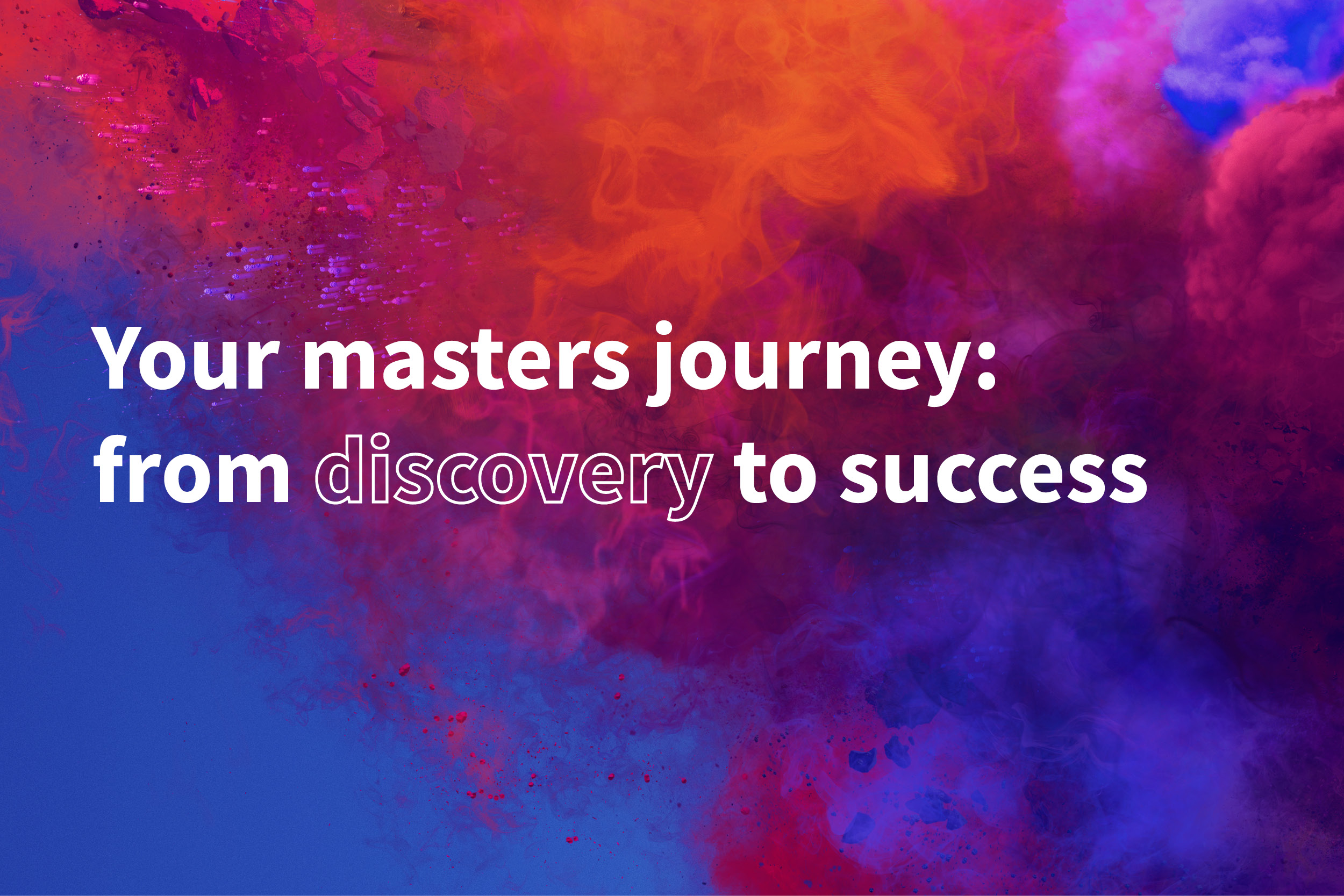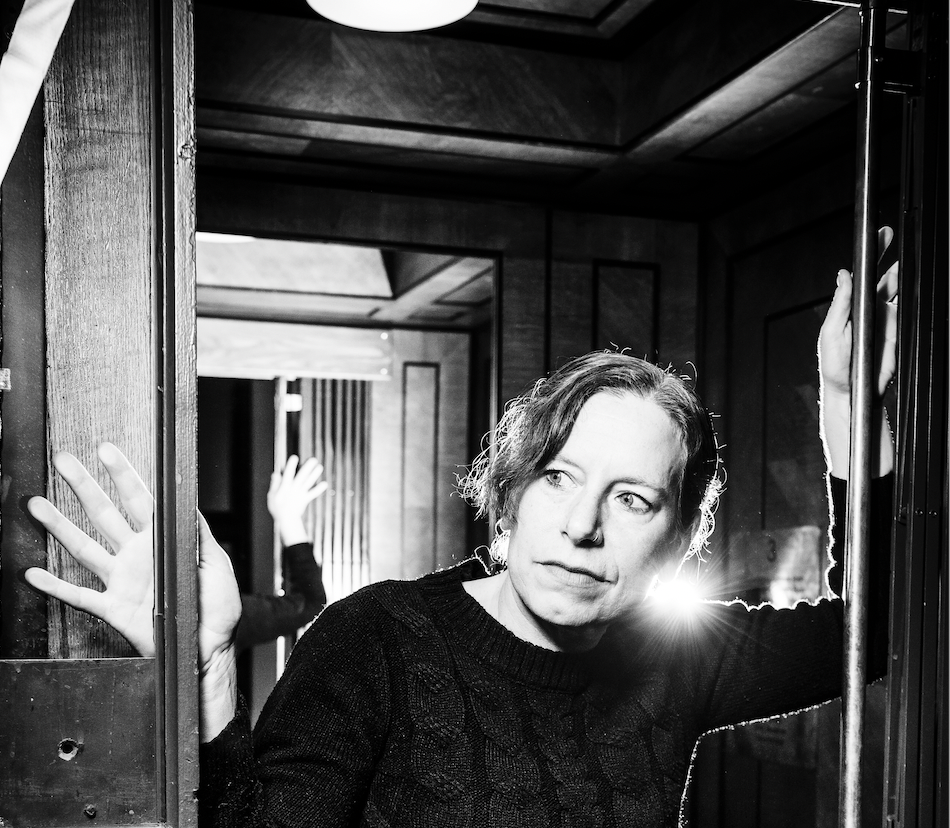Study options
- Starting in
- September 2025
- Location
- Fees
- Home: £12,250
Overseas: £25,500
EU/EEA/Swiss students
What you'll study
This programme will develop your creativity and technical expertise across a range of creative arts and media disciplines. Through a blend of practical skills and critical thinking, you’ll gain the ability to produce and evaluate work in film, performance, and digital media, while applying your learning to real-world professional contexts.
You will learn to design and manage creative projects independently and collaboratively, refining your work through reflection and evaluation against industry and academic standards. The programme emphasises both creative entrepreneurship and enterprise, preparing you to thrive in the ever-evolving creative industries.
You will engage in a variety of learning experiences, from workshops and seminars to masterclasses and professional projects. The final project, developed with external professional support, will allow you to showcase your skills in a live-brief environment.
The programme is taught by experts with strong industry connections, providing you with access to cutting-edge creative practices and opportunities to collaborate with renowned organisations such as the Barbican, Tate Modern, and the National Theatre. Supported by state-of-the-art production and rehearsal spaces, you'll have the tools to bring your creative ideas to life, while receiving guidance from staff with expertise in both written and practice-based research.
Structure
You'll be taught across four assessed modules, including guided electives. Two in both semesters 1 and 2, and will complete a final project in conclusion of your studies.
There are two compulsory modules in Making Media, and Creative Production, and three elective modules.
Compulsory/Core modules
Essential for creatives, filmmakers and scholars alike, this module provides an overview of the workflows involved in the production of film, theatre, live art, gallery exhibition, film/arts festivals and other art forms. Examining the different stages of production, post-production and exhibition/distribution, the module describes how projects are pitched, funded and financed and addresses issues of contracts, copyright, intellectual property rights, contracts, insurance, logistics, marketing, ethics, accessibility, inclusion and more. The module hosts industry professionals and draws upon case studies of productions from a range of different contexts including experimental theatre, performance art, documentary and fiction filmmaking, sound art, VR and augmented/ immersive practices, and artists' moving image.
What does it mean to create 'audio-visual' media in the context of contemporary creative arts? What sorts of surfaces, screens, tools, channels, materials and processes might be involved in these practices of creative making? What advantages might digital tools have over the analogue and vice-versa? Where, when and how might audience members consume such content outside or including established institutions such as cinemas or theatres? Working collaboratively with colleagues in response to a project brief, this workshop-based module will give you the opportunity to produce and develop new audio-visual materials for audiences who might be variously present or virtually in place.
This project allows you to design and create an original arts and media project in response to a brief given by one of STA¿s external Creative Industries partner organisations, and you will work in response to the `real world¿ needs and requirements that they identify, supported The external partner will provide some additional support In doing this, you will be enabled to use your skills and knowledge to meet the needs and values of a professional organisation and their audience through the creative making of an original project.
Compulsory/Core Elective modules
This module invites you to consider collaborative practices as integral to creative and critical writing. Countering notions of writing as solitary pursuit, or individualistic, competitive enterprise within a literary marketplace, the materials and activities on this module will demonstrate how collaboration can enable, support, and expand writers¿ research and practice. Collaboration will be understood in a variety of contexts, including conversation, improvisation, co-writing, cross-genre and interdisciplinary composition, DIY publishing, and event organisation. You will read, view, and listen to a range of texts and artworks produced collaboratively; you will be introduced to and asked to invent processes for making work with others; you will be encouraged to reflect on the aesthetic, intellectual, and political challenges that emerge in these collaborative processes. While collaboration is key to this module, it¿s recognized that students¿ abilities and interests differ: an initial stage of allotting roles and responsibilities will address this, and the nature of individual students' contributions to group work may differ.
Writing for production enables you to initiate, develop and present creative writing that meets the needs of a range of different contexts of creative production. Whether you're interested in playwriting, dramatic monologues, film scripts, augmented-reality storytelling, video game narratives or other forms of creative writing for media, you will gain new skills through writing workshops, critical discussions of set readings, and group activities. You will be led by an experienced practitioner who will provide expert guidance, intellectual and creative rigour, and a mutually supportive environment in which to enhance your craft as a writer. You will also deepen your skills in initiating, developing, and presenting your writing to an audience.
Assessment
- 67% Modules
- 33% Dissertation
Depending on the modules you select your work will be assessed by a wide variety of methods including creative projects, essays, presentations, and project plans.
Dissertation
You will also be assessed on a final project in semester three 'Content Creation for Creative Industries'.
Teaching
You’ll experience a blend of project-based, practice-led learning and critical inquiry, reflecting the School of the Arts' belief that theory and practice enrich each other.
You’ll learn through hands-on workshops, seminars, masterclasses, fieldwork, and professional commissions. The programme combines seminar-based and practice modules, with your final project developed alongside external professionals.
This programme is designed to give you a broad understanding of creative arts practices, drawing on cultural, aesthetic, and professional perspectives. With a strong focus on both research and practice, you'll be engaged with the latest developments in the field and have access to industry expertise through our extensive partnerships.
You'll take full advantage of London's vibrant cultural sector, attending events and collaborating with visiting artists, designers, and scholars. Our industry connections with leading organisations like the Barbican, Tate Modern, and National Theatre provide invaluable real-world experience.
You’ll also have access to state-of-the-art facilities, including production and rehearsal spaces, edit suites, and the BLOC arts research facility. Our technical staff will support your practical work and introduce you to our extensive technical resources, ensuring you have everything you need to succeed.
Where you'll learn
Facilities
- Our new Graduate Centre: purpose-built study spaces and a roof-top common room with a terrace
- You'll have access to our well-equipped, industry standard production and rehearsal spaces including the Film and Drama Studio, edit and production suites and the BLOC arts research facility
- Access to Queen Mary's comprehensive libraries, including the Postgraduate Reading Room
Campus
The MA Creative Arts and Media will enable students to capitalise on London's position as a global cultural capital, with outstanding artistic and creative industries resources and opportunities. This is reflected in the School of the Arts' longstanding links and work with a variety of organisations including Artangel, Fuel Theatre, ArtsAdmin, The Barbican, BFI, London International Film Festival, London International Festival of Theatre, Tate Modern, Graeae Theatre Company, The National Theatre, Wasafiri, Whitechapel Art Gallery, Battersea Arts Centre and more.
About the School
School of the Arts
The School of the Arts combines innovation, discovery and excellence in education and research in Drama, Film, Modern Languages, English & Comparative Literature, Creative Writing, Linguistics and Liberal Arts. We rank in the top 100 worldwide for Arts and Humanities (QS World University Rankings by Subject 2024)
With our commitment to social justice, inclusivity and social mobility, our collaborations with external organisations, prominent writers and performers, and our facilities that support both academic and practice-based learning, an education in the School of the Arts equips our students with critical thinking and practical skills, unleashes their imagination and enables them to reach the levels of excellence needed in today’s industries.
We regularly host prominent writers and performers and collaborate with leading organisations such as the V&A, the Barbican, the Live Art Development Agency and Shakespeare’s Globe.
We are renowned for the depth and impact of research - which leads our teaching. We rank 1st for drama and in the top 10 for film in the UK for the quality of our research (REF2021). Our multilingual community brings together brilliant minds from across the world to share a wealth of expertise combining research excellence with an unrivalled commitment to social justice and social mobility.
Career paths
This programme aims to provide a range of career prospects for its graduates across the Creative Industries from artistic creation and design, to production, management and education.
It will enable sustained reflection and practical development for established practitioners; and enhance professional development in teaching, arts administration and a wide range of other creative careers.
Fees and funding
Full-time study
September 2025 | 1 year
- Home: £12,250
- Overseas: £25,500
EU/EEA/Swiss students
Unconditional deposit
Home: Not applicable
Overseas: £2000
Information about deposits
Queen Mary alumni can get a £1000, 10% or 20% discount on their fees depending on the programme of study. Find out more about the Alumni Loyalty Award
Funding
There are a number of ways you can fund your postgraduate degree.
- Scholarships and bursaries
- Postgraduate loans (UK students)
- Country-specific scholarships for international students
Our Advice and Counselling service offers specialist support on financial issues, which you can access as soon as you apply for a place at Queen Mary. Before you apply, you can access our funding guides and advice on managing your money:
Entry requirements
UK
Degree requirements
A 2:1 or above at undergraduate level in any subject
Find out more about how to apply for our postgraduate taught courses.
International
English language requirements
The English language requirements for our programmes are indicated by English bands, and therefore the specific test and score acceptable is based on the band assigned to the academic department within which your chosen course of study is administered. Note that for some academic departments there are programmes with non-standard English language requirements.
The English Language requirements for entry to postgraduate taught and research programmes in the School of the Arts fall within the following English band:
Band 5: IELTS (Academic) minimum score 7.0 overall with 6.0 in each of Writing, Listening, Reading and Speaking
We accept a range of English tests and qualifications categorised in our English bands for you to demonstrate your level of English Language proficiency. See all accepted English tests that we deem equivalent to these IELTS scores.
Visas and immigration
Find out how to apply for a student visa.



